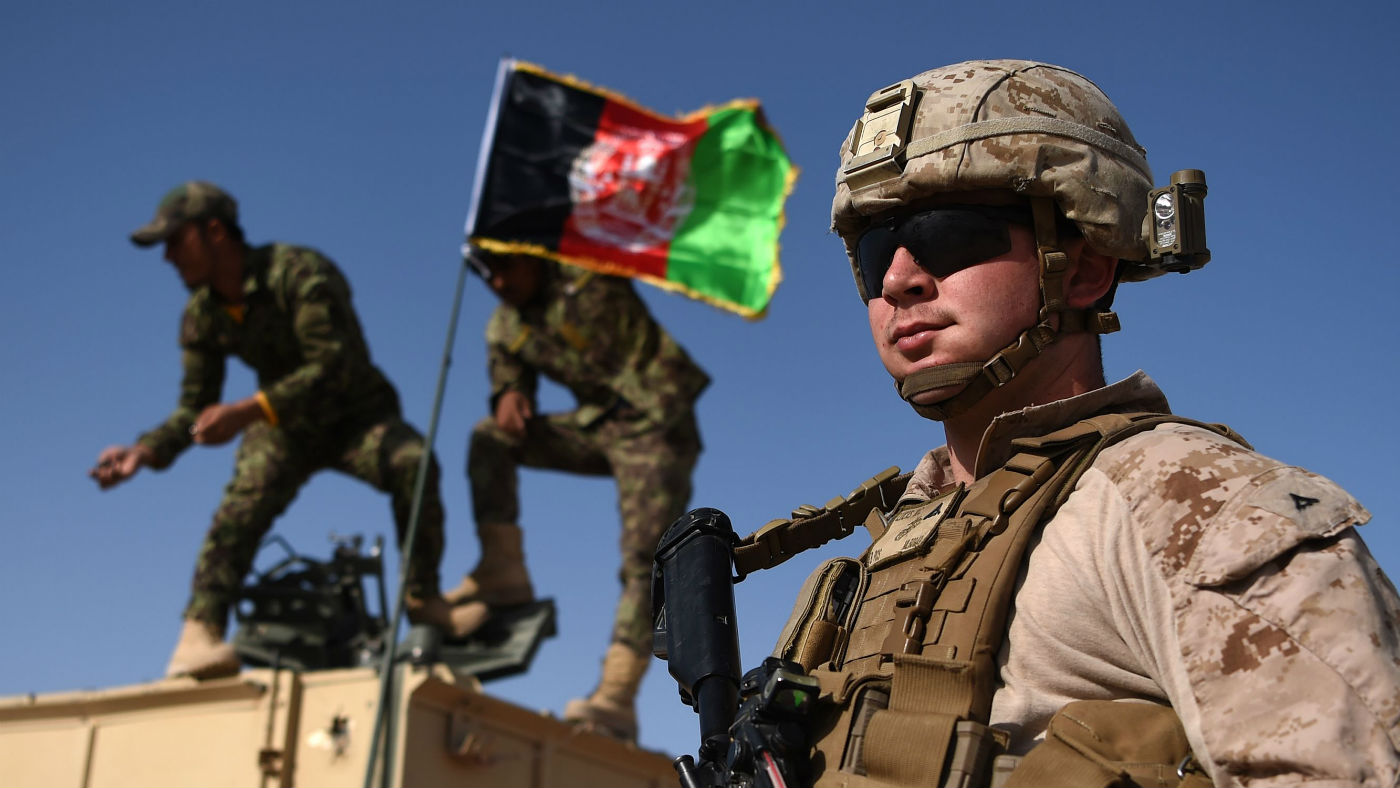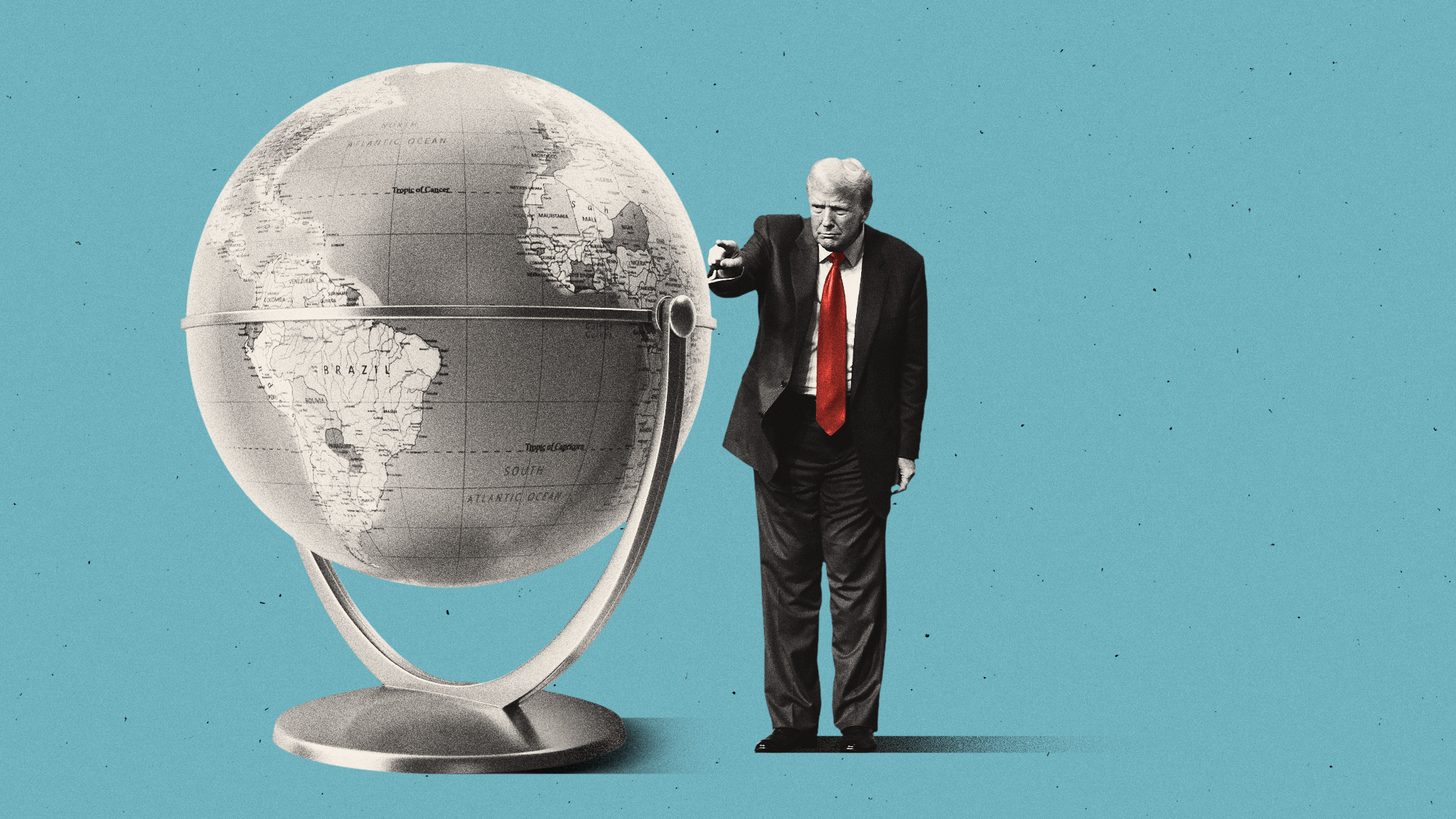Will US-Taliban peace ‘framework’ lead to lasting deal?
US envoy announces breakthrough that could finally end Afghan war after 17 years – but major obstacles still remain

A free daily email with the biggest news stories of the day – and the best features from TheWeek.com
You are now subscribed
Your newsletter sign-up was successful
US officials and the Taliban have agreed in principle a framework for a peace deal that could finally bring an end to the 17-year war in Afghanistan.
Following six days of talks in Qatar, America’s chief negotiator Zalmay Khalilzad told the New York Times the deal would see insurgents guarantee to prevent Afghan territory from being used by terrorists, which in turn could lead to a full pullout of American troops in return for larger concessions from the Taliban.
The Guardian reports that Afghan insurgents have “signalled their commitment to talks by naming one of their most senior commanders [Mullah Abdul Ghani Baradar] as chief negotiator”.
The Week
Escape your echo chamber. Get the facts behind the news, plus analysis from multiple perspectives.

Sign up for The Week's Free Newsletters
From our morning news briefing to a weekly Good News Newsletter, get the best of The Week delivered directly to your inbox.
From our morning news briefing to a weekly Good News Newsletter, get the best of The Week delivered directly to your inbox.
“After nine years of halting efforts to reach a peace deal with the Taliban, the draft framework, though preliminary, is the biggest tangible step toward ending a two-decade war that has cost tens of thousands of lives and profoundly changed American foreign policy,” says the New York Times.
The US currently has around 14,000 troops in the country, the majority of whom are part of a larger NATO-led mission to train, advise and assist Afghan forces.
The 17-year conflict is the longest war in American history, has cost the lives of more than 2,400 US soldiers, cost billions of dollars and spanned three presidents. The number of Afghan soldiers and civilians killed or injured is estimated be in the hundreds of thousands.
Despite this, the Taliban’s power and reach have surged since foreign troops pulled out in 2014.
A free daily email with the biggest news stories of the day – and the best features from TheWeek.com
They have been staging near-daily attacks targeting Afghan forces, causing scores of casualties every week and securing large swathes of the country. It is estimated that around 15 million people, half the Afghan population, are now living in areas either controlled by the Taliban or where the militants are openly present and regularly mount attacks.
“That has made peace an even more pressing issue,” says TIME.
The BBC's South Asia editor Jill McGivering says the discussions “clearly remain at a provisional stage - and a long way from agreement on the broader issues required for lasting peace in Afghanistan - but after years of stalemate, it's welcome progress”.
But in a sign of the obstacles ahead, an Afghan source close to the negotiations told CNN “the Taliban will not agree to a ceasefire without the US committing to a full troop withdrawal, but the Americans want any withdrawal to be conditional on the ceasefire holding”.
“The Taliban are sceptical that the US will actually pull out if the ceasefire holds,” says the news network.
Any US troop withdrawal would also be contingent on the Taliban talking directly with the Afghan government, something its leaders have repeatedly ruled out, dismissing those in power in Kabul as “puppets”.
According to The Guardian “there is a growing desperation for peace among ordinary Afghans” but the country's president, Ashraf Ghani, has moved to assure his people that no deals would be made without Kabul’s awareness and full participation in negotiations, and that their rights will not be compromised in the name of peace with the Taliban.
In a bid to break any potential deadlock, the New York Times reports that Khalilzad has “suggested the idea of 'freezing' the agreement on the two central issues and waiting for Taliban to deliver on the conditions laid out for finalising it. But he also suggested that might test President Trump’s already waning patience.”
Trump is keen to draw down US troop numbers in Afghanistan.
In December, The Wall Street Journal reported that the US military had been ordered to begin planning to withdraw about half the troops in the country.
According the paper the decision was made at the same time as Trump decided to pull out all US troops from Syria – a move that was widely criticised from within the administration and led to the resignation of Defense Secretary James Mattis.
-
 What is the endgame in the DHS shutdown?
What is the endgame in the DHS shutdown?Today’s Big Question Democrats want to rein in ICE’s immigration crackdown
-
 ‘Poor time management isn’t just an inconvenience’
‘Poor time management isn’t just an inconvenience’Instant Opinion Opinion, comment and editorials of the day
-
 Bad Bunny’s Super Bowl: A win for unity
Bad Bunny’s Super Bowl: A win for unityFeature The global superstar's halftime show was a celebration for everyone to enjoy
-
 Munich Security Conference: a showdown between Europe and Trump?
Munich Security Conference: a showdown between Europe and Trump?Today’s Big Question Report suggests European leaders believe they can no longer rely on the US for military support – but decoupling is easier said than done
-
 New START: the final US-Russia nuclear treaty about to expire
New START: the final US-Russia nuclear treaty about to expireThe Explainer The last agreement between Washington and Moscow expires within weeks
-
 Would Europe defend Greenland from US aggression?
Would Europe defend Greenland from US aggression?Today’s Big Question ‘Mildness’ of EU pushback against Trump provocation ‘illustrates the bind Europe finds itself in’
-
 Greenland, Colombia, Cuba: where is Donald Trump eyeing up next?
Greenland, Colombia, Cuba: where is Donald Trump eyeing up next?Today's Big Question Ousting Venezuela’s leader could embolden the US administration to exert its dominance elsewhere
-
 Did Trump just end the US-Europe alliance?
Did Trump just end the US-Europe alliance?Today's Big Question New US national security policy drops ‘grenade’ on Europe and should serve as ‘the mother of all wake-up calls’
-
 Trump peace deal: an offer Zelenskyy can’t refuse?
Trump peace deal: an offer Zelenskyy can’t refuse?Today’s Big Question ‘Unpalatable’ US plan may strengthen embattled Ukrainian president at home
-
 Vladimir Putin’s ‘nuclear tsunami’ missile
Vladimir Putin’s ‘nuclear tsunami’ missileThe Explainer Russian president has boasted that there is no way to intercept the new weapon
-
 Russia’s war games and the threat to Nato
Russia’s war games and the threat to NatoIn depth Incursion into Poland and Zapad 2025 exercises seen as a test for Europe